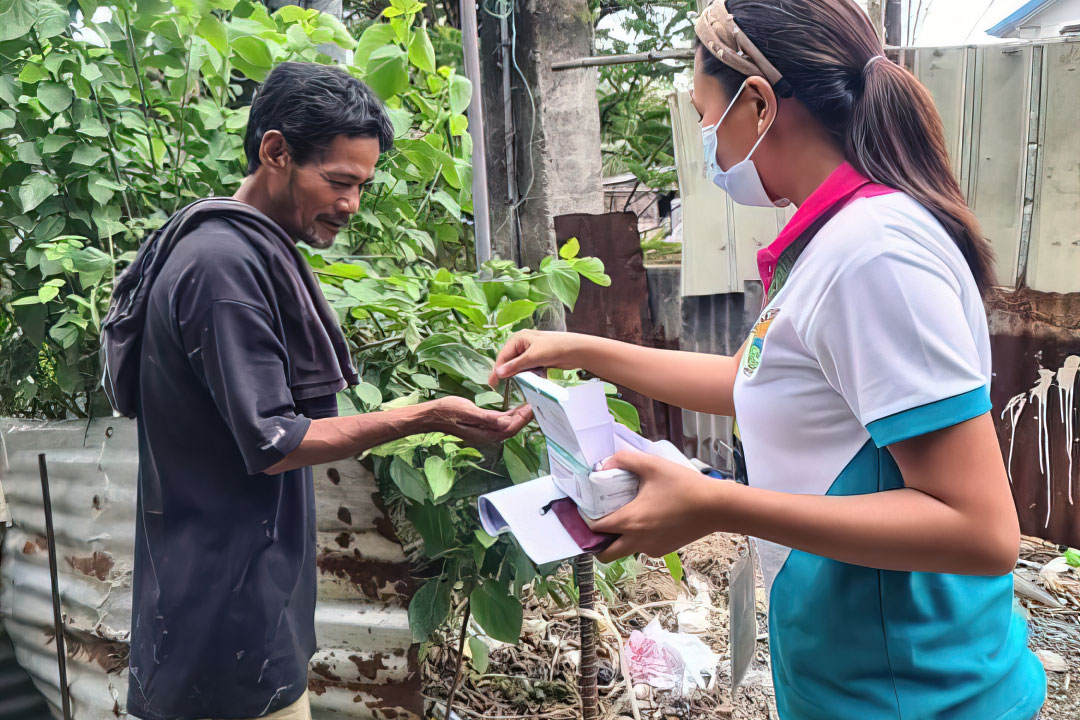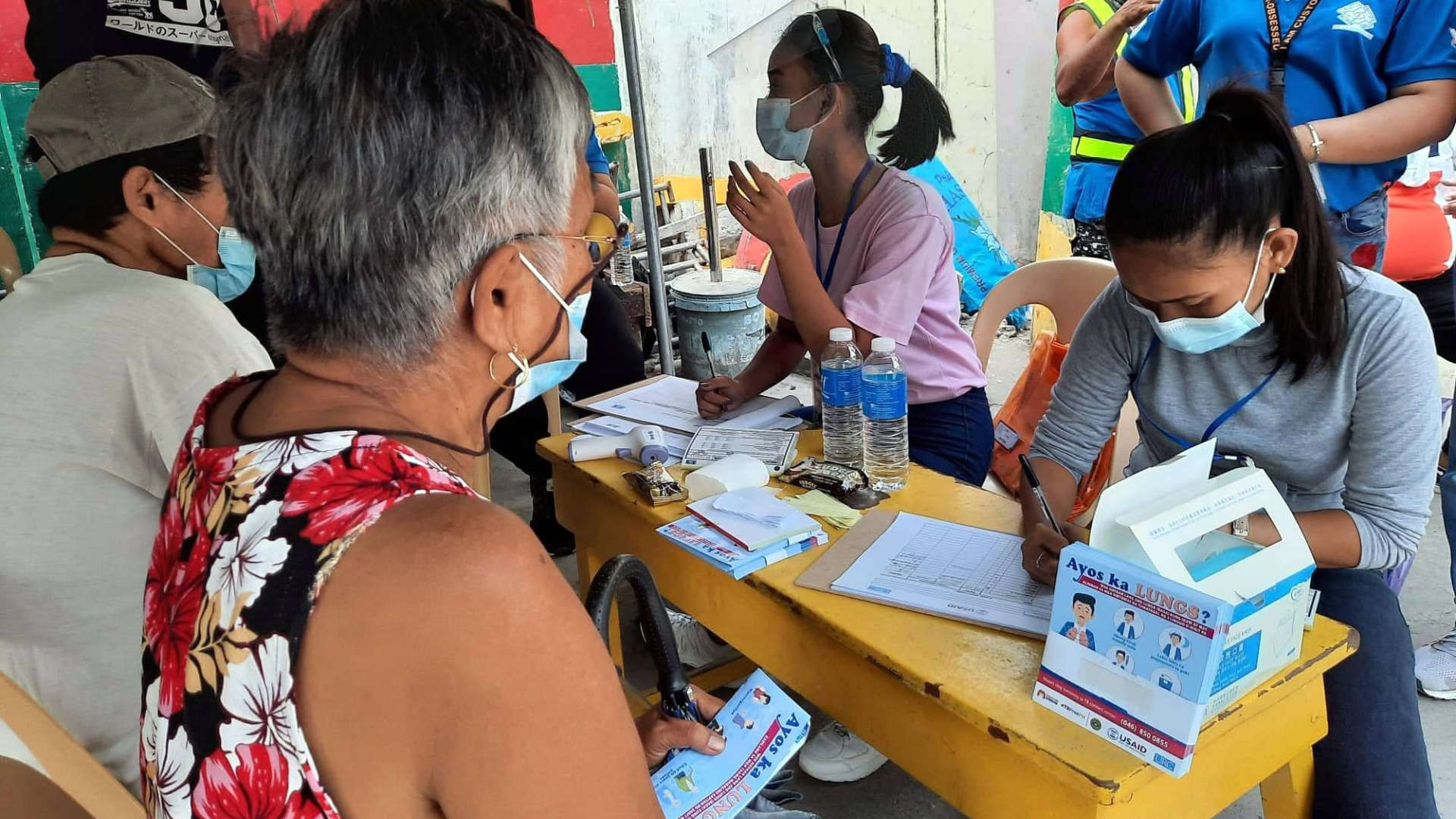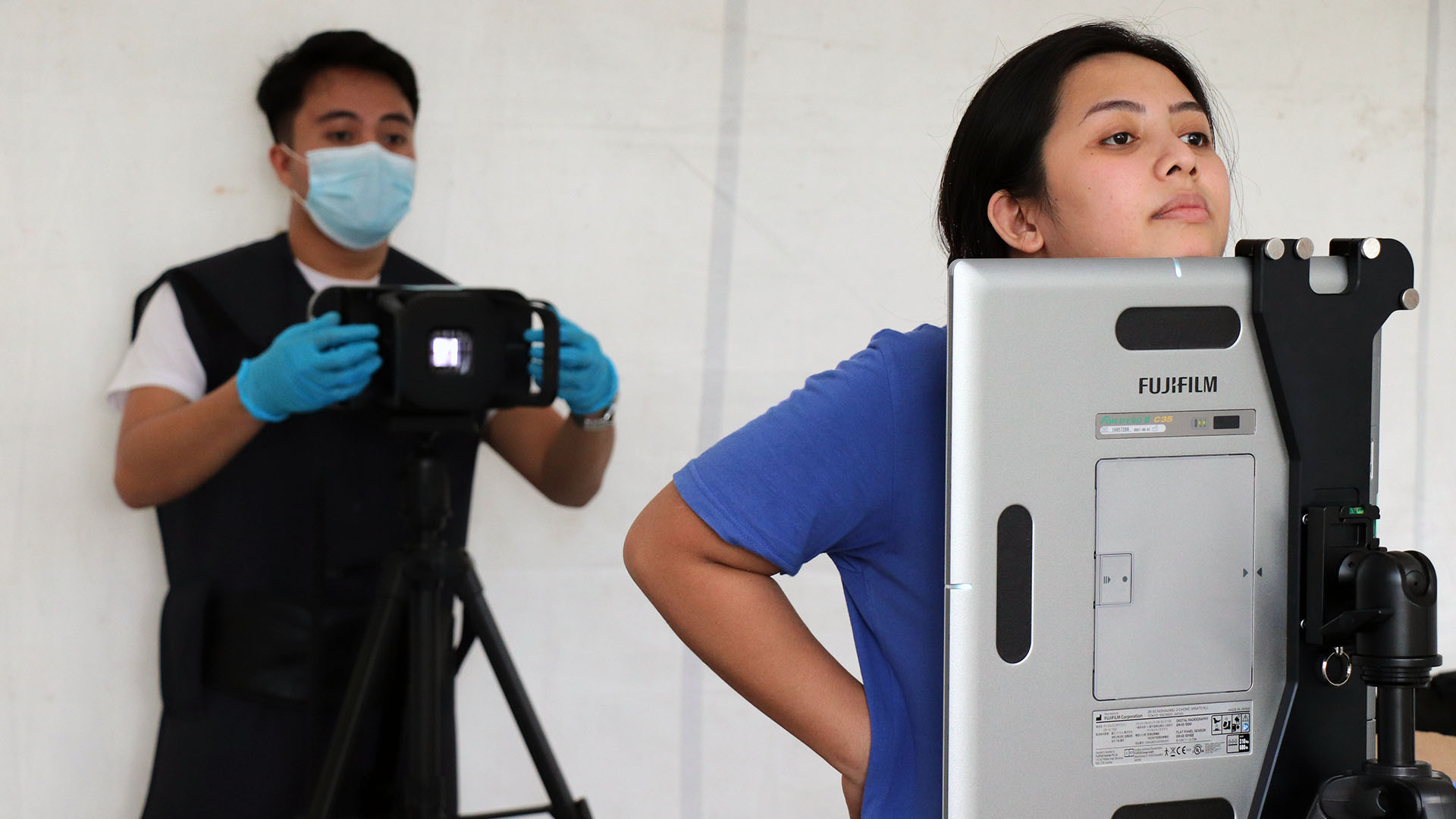Climate-related events – such as extreme weather, heatwaves, floods, and droughts – affect human health and well-being both directly and indirectly.
Typhoons, for example, flood homes and wash out roads. But even after these storms pass, health care service delivery often continues to be interrupted or fragile. Some communities are hit much worse than others due to their location or infrastructure. In these cases, people in need of regular treatment for diseases such as tuberculosis (TB) can suffer greatly.
The Philippines experiences severe storms and typhoons every year, including in 2020. On Nov. 11 and 12, 2020, the Category 4 typhoon Vamco (also known as Ulysses) made landfall in the Philippines and brought torrential rains, strong winds, and storm surges to parts of Metro Manila City and northern coastal Luzon. The storm flooded tens of thousands of homes in Manila’s low-lying suburbs and caused floods and landslides in other northern coastal areas.
Navigating Storm Damage to Deliver TB Medication
Baler, a municipality in the Aurora Province known as a surfing destination, was hard hit by typhoon Ulysses. The coastal town, located about five hours north of Metro Manila, suffered extensive damages to beachfront homes and businesses. More than 7,000 families from 98 barangays in Baler – a total of 22,219 people – were preemptively brought to evacuation centers.
In Baler, people diagnosed with TB and initiated on anti-TB treatment receive supervised daily doses of their TB medications. Either a nurse at a TB clinic or a trained community health worker supervise the dispensing of medications.
Of the 51 TB patients in Baler registered to receive TB treatment in November 2020, approximately 40 could not reach the TB clinic to get their medication. In addition to addressing these displaced people’s needs for shelter, clean water, and food, Dr. Lusito Teh, the provincial health officer, and Dr. Charlou Pabillo, the TB program medical coordinator, worked to ensure that all the registered TB patients were accounted for and received their medicine. Because some of the roads had been washed away, community health workers tracked down the patients and delivered their daily doses via foot or bicycle.
Planning for Disasters to Limit their Impact on Health Services
While the province has a disaster reduction and risk mitigation plan, TB is not considered a priority service. This is despite global evidence showing that TB transmission and TB related morbidity and mortality increase during these disasters, especially in TB high-burden countries such as the Philippines.
“Ensuring continuity of TB treatment during emergencies and disasters should be included as part of public health emergency preparedness planning – making sure that people who are receiving treatment for TB are able to continue – even if they are displaced temporarily by an emergency or disaster,” said Dr. Mael Cautivar, Municipal Health Officer, Baler.
The USAID TB Platforms Project – implemented by URC – conducted a baseline capacity assessment using USAID’s Global Climate Change Institutional Capacity Assessment Tool.
The assessment revealed weaknesses in resource allocation, data and data use, and knowledge management. Based on these findings, USAID’s TB Platforms is working with local health authorities in Aurora Province to create an action plan for climate change management.
In approximately one year, a repeat assessment will measure the province’s progress against the previously identified gaps. Ultimately, the goal is to prevent and mitigate the impact of climate change-related events on health systems and human lives.
“While our TB indicators are showing improvements, it is necessary that we have a clear understanding of the effects of climate change on infectious diseases – particularly tuberculosis – to finally defeat this dreaded disease,” said Dr. Lusito Teh, Provincial Health Officer II, Aurora Province.
Health care systems are on the front lines of climate change. Systems must adapt and be ready to ensure that essential services continue to meet patient needs.



